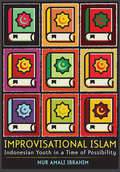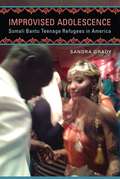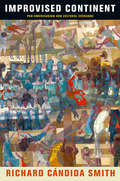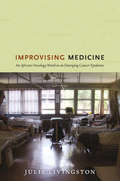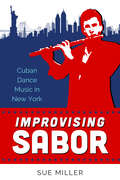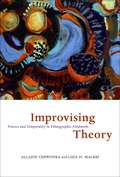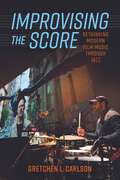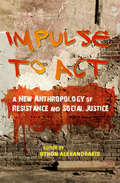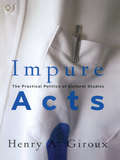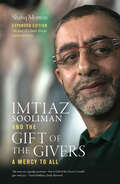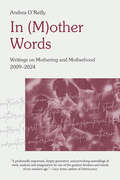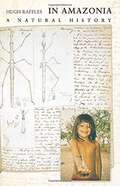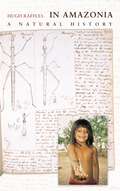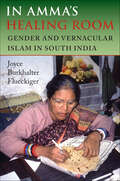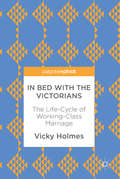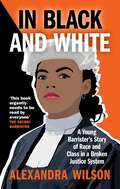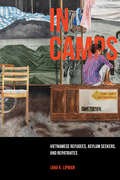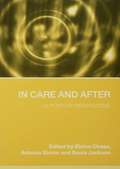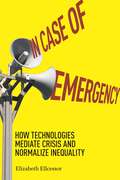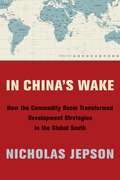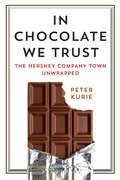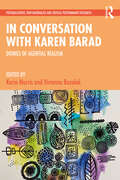- Table View
- List View
Improvisational Islam: Indonesian Youth in a Time of Possibility
by Nur Amali IbrahimImprovisational Islam is about novel and unexpected ways of being Muslim, where religious dispositions are achieved through techniques that have little or no precedent in classical Islamic texts or concepts. Nur Amali Ibrahim foregrounds two distinct autodidactic university student organizations, each trying to envision alternative ways of being Muslim independent from established religious and political authorities. One group draws from methods originating from the business world, like accounting, auditing, and self-help, to promote a puritanical understanding of the religion and spearhead Indonesia’s spiritual rebirth. A second group reads Islamic scriptures alongside the western human sciences. Both groups, he argues, show a great degree of improvisation and creativity in their interpretations of Islam.These experimental forms of religious improvisations and practices have developed in a specific Indonesian political context that has evolved after the deposal of President Suharto’s authoritarian New Order regime in 1998. At the same time, Improvisational Islam suggests that the Indonesian case study brings into sharper relief processes that are happening in ordinary Muslim life everywhere. To be a practitioner of their religion, Muslims draw on and are inspired by not only their holy scriptures, but also the non-traditional ideas and practices that circulate in their society, which importantly include those originating in the West. In the contemporary political discourse where Muslims are often portrayed as uncompromising and adversarial to the West and where bans and walls are deemed necessary to keep them out, this story about flexible and creative Muslims is an important one to tell.
Improvised Adolescence
by Sandra GradyChanging from child to young adult is difficult everywhere. But to experience childhood in continuous flight from conflict, then move into adolescence as a refugee in a radically different culture, is a more than usually complicated transition for teens and for their parents, communities, teachers, and social workers. Improvised Adolescence explores how teenagers from southern Somalia, who spent much of their childhood in East African refugee camps, are adapting to resettlement in the American Midwest. The collapse of the Somali state in 1991, and subsequent chaos in the Horn of Africa, disrupted the lives of these young people educationally, culturally, and developmentally. Folklorist Sandra Grady has intermittently observed the lifeworld of these teens--their homes, their entertainment choices, their interaction with classmates and teachers at school, and their plans for the future--for more than seven years to understand the cultural tools they've used in their journey from this disrupted childhood. They negotiate two sets of cultural expectations: in the resettled Somali Bantu community, traditional rites of passage continue to mark the change from child to adu
Improvised Continent: Pan-Americanism and Cultural Exchange
by Richard Cándida SmithHow does a country in the process of becoming a world power prepare its citizens for the responsibilities of global leadership? In Improvised Continent, Richard Cándida Smith answers this question by illuminating the forgotten story of how, over the course of the twentieth century, cultural exchange programs, some run by the government and others by philanthropies and major cultural institutions, brought many of the most important artists and writers of Latin America to live and work in the United States.Improvised Continent is the first book to focus on cultural exchange inside the United States and how Americans responded to Latin American writers and artists. Moving masterfully between the history of ideas, biography, institutional history and politics, and international relations, and engaging works in French, German, Spanish, and Portuguese, Cándida Smith synthesizes over seventy years of Pan-American cultural activity in the United States.The stories behind Diego Rivera's murals, the movies of Alejandro G. Iñárritu, the poetry of Gabriela Mistral, the photography of Genevieve Naylor, and the novels of Carlos Fuentes—these works and artists, along with many others, challenged U.S. citizens about their place in the world and about the kind of global relations the country's interests could allow. Improvised Continent provides a profoundly compassionate portrayal of the Latin American artists and writers who believed their practices might create a more humane world.
Improvising Medicine: An African Oncology Ward in an Emerging Cancer Epidemic
by Julie LivingstonIn Improvising Medicine, Julie Livingston tells the story of Botswana's only dedicated cancer ward, located in its capital city of Gaborone. This affecting ethnography follows patients, their relatives, and ward staff as a cancer epidemic emerged in Botswana. The epidemic is part of an ongoing surge in cancers across the global south; the stories of Botswana's oncology ward dramatize the human stakes and intellectual and institutional challenges of an epidemic that will shape the future of global health. They convey the contingencies of high-tech medicine in a hospital where vital machines are often broken, drugs go in and out of stock, and bed-space is always at a premium. They also reveal cancer as something that happens between people. Serious illness, care, pain, disfigurement, and even death emerge as deeply social experiences. Livingston describes the cancer ward in terms of the bureaucracy, vulnerability, power, biomedical science, mortality, and hope that shape contemporary experience in southern Africa. Her ethnography is a profound reflection on the social orchestration of hope and futility in an African hospital, the politics and economics of healthcare in Africa, and palliation and disfigurement across the global south.
Improvising Sabor: Cuban Dance Music in New York
by Sue MillerImprovising Sabor: Cuban Dance Music in New York begins in 1960s New York and examines in rich detail the playing styles and international influence of important figures in US Latin music. Such innovators as José Fajardo, Johnny Pacheco, George Castro, and Eddy Zervigón dazzled the Palladium ballroom and other Latin music venues in those crucible years. Author Sue Miller focuses on the Cuban flute style in light of its transformations in the US after the 1959 revolution and within the vibrant context of 1960s New York. While much about Latin jazz and salsa has been written, this book focuses on the relatively unexplored New York charangas that were performing during the chachachá and pachanga craze of the early sixties. Indeed, many accounts cut straight from the 1950s and the mambo to the bugalú’s development in the late 1960s with little mention of the chachachá and pachanga’s popularity in the mid-twentieth century. Improvising Sabor addresses not only this lost and ignored history, but contends with issues of race, class, and identity while evaluating differences in style between players from prerevolution Cuban charangas and those of 1960s New York. Through comprehensive explorations and transcriptions of numerous musical examples as well as interviews with and commentary from Latin musicians, Improvising Sabor highlights a specific sabor that is rooted in both Cuban dance music forms and the rich performance culture of Latin New York. The distinctive styles generated by these musicians sparked compelling points of departure and influence.
Improvising Theory: Process And Temporality In Ethnographic Fieldwork
by Liisa H. Malkki Allaine CerwonkaScholars have long recognized that ethnographic method is bound up with the construction of theory in ways that are difficult to teach. The reason, Allaine Cerwonka and Liisa H. Malkki argue, is that ethnographic theorization is essentially improvisatory in nature, conducted in real time and in necessarily unpredictable social situations. In a unique account of, and critical reflection on, the process of theoretical improvisation in ethnographic research, they demonstrate how both objects of analysis, and our ways of knowing and explaining them, are created and discovered in the give and take of real life, in all its unpredictability and immediacy. Improvising Theory centers on the year-long correspondence between Cerwonka, then a graduate student in political science conducting research in Australia, and her anthropologist mentor, Malkki. Through regular e-mail exchanges, Malkki attempted to teach Cerwonka, then new to the discipline, the basic tools and subtle intuition needed for anthropological fieldwork. The result is a strikingly original dissection of the processual ethics and politics of method in ethnography.
Improvising the Score: Rethinking Modern Film Music through Jazz
by Gretchen L. Carlson2023 Jazz Journalists Association (JJA) Jazz Awards for Books of the Year—Honorable Mention RecipientOn December 4, 1957, Miles Davis revolutionized film soundtrack production, improvising the score for Louis Malle’s Ascenseur pour l’échafaud. A cinematic harbinger of the French New Wave, Ascenseur challenged mainstream filmmaking conventions, emphasizing experimentation and creative collaboration. It was in this environment during the late 1950s to 1960s, a brief “golden age” for jazz in film, that many independent filmmakers valued improvisational techniques, featuring soundtracks from such seminal figures as John Lewis, Thelonious Monk, and Duke Ellington. But what of jazz in film today? Improvising the Score: Rethinking Modern Film Music through Jazz provides an original, vivid investigation of innovative collaborations between renowned contemporary jazz artists and prominent independent filmmakers. The book explores how these integrative jazz-film productions challenge us to rethink the possibilities of cinematic music production. In-depth case studies include collaborations between Terence Blanchard and Spike Lee (Malcolm X, When the Levees Broke), Dick Hyman and Woody Allen (Hannah and Her Sisters), Antonio Sánchez and Alejandro González Iñárritu (Birdman), and Mark Isham and Alan Rudolph (Afterglow). The first book of its kind, this study examines jazz artists’ work in film from a sociological perspective, offering rich, behind-the-scenes analyses of their unique collaborative relationships with filmmakers. It investigates how jazz artists negotiate their own “creative labor,” examining the tensions between improvisation and the conventionally highly regulated structures, hierarchies, and expectations of filmmaking. Grounded in personal interviews and detailed film production analysis, Improvising the Score illustrates the dynamic possibilities of integrative artistic collaborations between jazz, film, and other contemporary media, exemplifying its ripeness for shaping and invigorating twenty-first-century arts, media, and culture.
Impulse to Act: A New Anthropology of Resistance and Social Justice
by Othon AlexandrakisWhat drives people to take to the streets in protest? What is their connection to other activists and how does that change over time? How do seemingly spontaneous activist movements emerge, endure, and evolve, especially when they lack a leader and concrete agenda? How does one analyze a changing political movement immersed in contingency? Impulse to Act addresses these questions incisively, examining a wide range of activist movements from the December 2008 protests in Greece to the recent chto delat in Russia. Contributors in the first section of this volume highlight the affective dimensions of political movements, charting the various ways in which participants coalesce around and belong to collectives of resistance. The potent agency of movements is highlighted in the second section, where scholars show how the emerging actions and critiques of protesters help disrupt authoritative political structures. Responding to the demands of the field today, the novel approaches to protest movements in Impulse to Act offer new ways to reengage with the traditional cornerstones of political anthropology.
Impure Acts: The Practical Politics of Cultural Studies
by Henry A. GirouxHenry A. Giroux challenges the contemporary politics of cynicism by addressing a number of issues including the various attacks on cultural politics, the multicultural discourses of academia, the corporate attack on higher education, and the cultural politics of the Disney empire.
Impurity of Blood: Defining Race in Spain, 1870-1930
by Joshua GoodeAlthough Francisco Franco courted the Nazis as allies during the Spanish Civil War in the late 1930s, the Spanish dictator's racial ideals had little to do with the kind of pure lineage that obsessed the Nazis. Indeed, Franco's idea of race -- that of a National Catholic state as the happy meeting grounds of many different peoples willingly blended together -- differed from most European conceptions of race in this period and had its roots in earlier views of Spanish racial identity from the late nineteenth and early twentieth centuries. In Impurity of Blood, Joshua Goode traces the development of racial theories in Spain from 1870 to 1930 in the burgeoning human science of anthropology and in political and social debates, exploring the counterintuitive Spanish proposition that racial mixture rather than racial purity was the bulwark of national strength.Goode begins with a history of ethnic thought in Spain in the medieval and early modern era, and then details the formation of racial thought in Spain's nascent human sciences. He goes on to explore the political, social, and cultural manifestations of racial thought at the dawn of the Franco regime and, finally, discusses its ramifications in Francoist Spain and post--World War II Europe. In the process, he brings together normally segregated historiographies of race in Europe.Goode analyzes the findings of Spanish racial theorists working to forge a Spanish racial identity in the late nineteenth and early twentieth centuries, when race and racial sciences were most in vogue across Europe. Spaniards devised their own racial identities using scientifically substantiated racial ideas and confronted head-on the apparent limitations of Spain's history by considering them as the defining characteristics of la raza española. The task of the Spanish social sciences was to trace the history of racial fusion: to study both the separate elements of the Spanish composition and the factors that had nurtured them. Ultimately, by exploring the development of Spanish racial thought between 1870 and 1930, Goode demonstrates that national identity based on mixture -- the inclusion rather than the exclusion of different peoples -- did not preclude the establishment of finely wrought and politically charged racial hierarchies. Providing a new comprehensive view of racial thought in Spain and its connections to the larger twentieth-century formation of racial thought in the West, Impurity of Blood will enlighten and inform scholars of Spanish and European history, racial theory, historical anthropology, and the history of science.
Imtiaz Sooliman and the Gift of the Givers: A Mercy For All
by Shafiq MortonIMTIAZ SOOLIMAN, a medical doctor practising in Pietermaritzburg, South Africa, visited a Shaikh in Istanbul in 1992. The Sufi teacher gave him a message that would dramatically change the lives of countless people. ‘To my absolute astonishment he told me I would help people for the rest of my life. He then instructed me to form a humanitarian organisation called the “Gift of the Givers”, and repeated the phrase “the best among people are those who benefit mankind”.’ Almost 30 years later Gift of the Givers, Africa’s largest humanitarian and disaster agency, has a reputation for speedy responses to floods, war, famine, fires, tsunamis, kidnapping and earthquakes. Well known for their interventions in South African and international disasters, teams of volunteers have undertaken missions to places such as Bosnia, Palestine, Japan, Haiti, Indonesia, Malawi and Mozambique. They have put up hospitals, run clinics, dug wells, drilled boreholes, built houses, offered scholarships and provided shelter, food and psychological succour to millions. Originally published in 2014, the book has been brought up to date to continue the extraordinary tale of an organisation that has become a South African legend – the first to intervene in so many devastating situations and bring hope to those who have lost everything. Gift of the Givers’ reputation for direct, honest and non-partisan solution-finding has become a beacon of hope in South Africa.
In (M)other Words: Writings on Mothering and Motherhood, 2009-2024
by Andrea O'ReillyDr. Andrea O'Reilly is internationally recognized as the founder of Motherhood Studies (2006) and its subfield Maternal Theory (2007), and creator of the concept of Matricentric Feminism, a feminism for and about mothers (2016) and Matricritics, a literary theory and practice for a reading of mother-focused texts (2021). With this collection O'Reilly continues the conversation on the meaning and nature of motherhood initiated by Adrienne Rich in Of Woman Born close to fifty years ago. In In (M)other Words, O'Reilly shares 25 of her chapters and articles published between 2009-2024 to examine the oppressive and empowering dimensions of mothering and to explore motherhood as institution, experience, subjectivity, and empowerment. The collection considers the central themes and theories of motherhood studies including normative motherhood, feminist mothering, maternal regret, matricentric pedagogy, young mothers, academic motherhood, matricentric feminism, matricritics, motherhood and feminism, the motherhood memoir, the twenty-first-century motherhood movement, mothers and daughters, mothers and sons, pandemic mothering, and the motherline.
In All Fairness: Equality, Liberty, and the Quest for Human Dignity
by Chris J. Coyne; Michael C. Munger; Robert M. WhaplesHas growing concern about inequality led to proposals to remake American society according to ill-conceived and coercive "egalitarian" measures that are fundamentally unjust and harmful?This unique book reveals the modern romance with equality of outcomes as destructive folly. Those elites and bureaucrats who advocate such notions claim that they champion the poor—but more often than not the nostrums of this managerial class undermine, rather than advance, economic and civil liberties, mass prosperity and human well-being. The authors of In All Fairness challenge all of the prevailing "egalitarian ideas," including the claim that market-based societies are riven by the social injustice of inequity in the first place. After all, an economy thrives with a division of labor that allows individuals who are unequal in interests and talents to pursue their own unique goals. Looked at in this way, equality is far more widespread than misplaced rhetoric might lead one to expect—as factual data show. But it is an equality of a particularly valuable type—one arrived at, not by top-down, oilgarchic attempts to impose economic uniformity, but by our respecting inviolable rules of fair play and the dignity of each person, a dignity that requires everyone to respect the voluntary transactions of others. This approach holds equity, liberty, diversity, and prosperity together. Would we want it any other way in America and anywhere around the world? The authors draw on economics, philosophy, religion, law, political science, and history to provide answers to a perennial question that especially agitates the American public today: Can the coercive powers of the state be used to achieve a kind of arithmetic equality? The authors, each in their own way, make a strong case that such powers should never be used in this fashion. Love inequality or loathe it, In All Fairness is full of key insights about the connections among fairness, liberty, equality and the quest for human dignity. You won&’t think about wealth and poverty, equality and inequality, in the same way ever again.
In Amazonia: A Natural History
by Hugh RafflesThe Amazon is not what it seems. As Hugh Raffles shows us in this captivating and innovative book, the world's last great wilderness has been transformed again and again by human activity. In Amazonia brings to life an Amazon whose allure and reality lie as much, or more, in what people have made of it as in what nature has wrought. It casts new light on centuries of encounter while describing the dramatic remaking of a sweeping landscape by residents of one small community in the Brazilian Amazon. Combining richly textured ethnographic research and lively historical analysis, Raffles weaves a fascinating story that changes our understanding of this region and challenges us to rethink what we mean by "nature." Raffles draws from a wide range of material to demonstrate--in contrast to the tendency to downplay human agency in the Amazon--that the region is an outcome of the intimately intertwined histories of humans and nonhumans. He moves between a detailed narrative that analyzes the production of scientific knowledge about Amazonia over the centuries and an absorbing account of the extraordinary transformations to the fluvial landscape carried out over the past forty years by the inhabitants of Igarapé Guariba, four hours downstream from the nearest city. Engagingly written, theoretically inventive, and vividly illustrated, the book introduces a diverse range of characters--from sixteenth-century explorers and their native rivals to nineteenth-century naturalists and contemporary ecologists, logging company executives, and river-traders. A natural history of a different kind, In Amazonia shows how humans, animals, rivers, and forests all participate in the making of a region that remains today at the center of debates in environmental politics.
In Amazonia: A Natural History
by Hugh RafflesThe Amazon is not what it seems. As Hugh Raffles shows us in this captivating and innovative book, the world's last great wilderness has been transformed again and again by human activity. In Amazonia brings to life an Amazon whose allure and reality lie as much, or more, in what people have made of it as in what nature has wrought. It casts new light on centuries of encounter while describing the dramatic remaking of a sweeping landscape by residents of one small community in the Brazilian Amazon. Combining richly textured ethnographic research and lively historical analysis, Raffles weaves a fascinating story that changes our understanding of this region and challenges us to rethink what we mean by "nature." Raffles draws from a wide range of material to demonstrate--in contrast to the tendency to downplay human agency in the Amazon--that the region is an outcome of the intimately intertwined histories of humans and nonhumans. He moves between a detailed narrative that analyzes the production of scientific knowledge about Amazonia over the centuries and an absorbing account of the extraordinary transformations to the fluvial landscape carried out over the past forty years by the inhabitants of Igarapé Guariba, four hours downstream from the nearest city. Engagingly written, theoretically inventive, and vividly illustrated, the book introduces a diverse range of characters--from sixteenth-century explorers and their native rivals to nineteenth-century naturalists and contemporary ecologists, logging company executives, and river-traders. A natural history of a different kind, In Amazonia shows how humans, animals, rivers, and forests all participate in the making of a region that remains today at the center of debates in environmental politics.
In Amma's Healing Room: Gender and Vernacular Islam in South India
by Joyce Burkhalter Flueckiger"[I]t is extremely salubrious to see the ways Islam works in the lives of ordinary people who are not politicized in their religious lives. . . . No other book on South Asia has material like this." —Ann Grodzins GoldIn Amma's Healing Room is a compelling study of the life and thought of a female Muslim spiritual healer in Hyderabad, South India. Joyce Burkhalter Flueckiger describes Amma's practice as a form of vernacular Islam arising in a particular locality, one in which the boundaries between Islam, Hinduism, and Christianity are fluid. In the "healing room," Amma meets a diverse clientele that includes men and women, Muslim, Hindu, and Christian, of varied social backgrounds, who bring a wide range of physical, social, and psychological afflictions. Flueckiger collaborated closely with Amma and relates to her at different moments as daughter, disciple, and researcher. The result is a work of insight and compassion that challenges widely held views of religion and gender in India and reveals the creativity of a tradition often portrayed by Muslims and non-Muslims alike as singular and monolithic.
In Bed with the Victorians
by Vicky HolmesThis book examines the life-cycle of Victorian working-class marriage through a study of the hitherto hidden marital bed. Using coroners' inquests to gain intimate access to the working-class home and its inhabitants, this book explores their marital, quasi-marital, and post-marital beds to reveal the material, domestic, and emotional experience of working-class marriage during everyday life and at times of crisis. Drawing on the recent approach of utilising domestic objects to explore interpersonal relationships, the marital bed not only provides a rereading of the experiences of the working-class wife but also brings the much maligned or simply overlooked working-class husband into the picture. Moreover, it also extends our understanding of the various marriage-like arrangements existing throughout this class. Moving through the marital life-cycle, this book provides a greater understanding of marriages from the outset, during childbirth, at times of strife and marital breakdown, and upon the death of a spouse.
In Black and White: A Young Barrister's Story of Race and Class in a Broken Justice System
by Alexandra Wilson**NOW WITH NEW AFTERWORD AND READING GROUP QUESTIONS**'An absolute triumph; a compelling and courageous memoir forcing the legal profession to confront uncomfortable truths about race and class. Alexandra Wilson is a bold and vital voice. This is a book that urgently needs to be read by everyone inside, and outside, the justice system.' THE SECRET BARRISTER Alexandra Wilson was a teenager when her dear family friend Ayo was stabbed on his way home from football. Ayo's death changed Alexandra. She felt compelled to enter the legal profession in search of answers. As a junior criminal and family law barrister, Alexandra finds herself navigating a world and a set of rules designed by a privileged few. A world in which fellow barristers sigh with relief when a racist judge retires: 'I've got a black kid today and he would have had no hope'. In her debut book, In Black and White, Alexandra re-creates the tense courtroom scenes, the heart-breaking meetings with teenage clients, and the moments of frustration and triumph that make up a young barrister's life. Alexandra shows us how it feels to defend someone who hates the colour of your skin, or someone you suspect is guilty. We see what it is like for children coerced into county line drug deals and the damage that can be caused when we criminalise teenagers. Alexandra's account of what she has witnessed as a young mixed-race barrister is in equal parts shocking, compelling, confounding and powerful. 'An inspirational, clear-eyed account of life as a junior barrister is made all the more exceptional by the determination, passion, humanity and drive of the author. Anyone interested in seeing how the law really works should read it.' SARAH LANGFORD'This is the story of a young woman who overcame all the obstacles a very old profession could throw at her, and she survived, with her integrity intact.' BENJAMIN ZEPHANIAH(P)Octopus Publishing Group 2020
In Black and White: A Young Barrister's Story of Race and Class in a Broken Justice System
by Alexandra Wilson'An absolute triumph; a compelling and courageous memoir forcing the legal profession to confront uncomfortable truths about race and class. Alexandra Wilson is a bold and vital voice. This is a book that urgently needs to be read by everyone inside, and outside, the justice system.' THE SECRET BARRISTER 'A riveting book in the best tradition of courtroom dramas but from the fresh perspective of a young female mixed-race barrister. That Alexandra is "often" mistaken for the defendant shows how important her presence at the bar really is.' MATT RUDD, THE SUNDAY TIMES MAGAZINE'This is the story of a young woman who overcame all the obstacles a very old profession could throw at her, and she survived, with her integrity intact.' BENJAMIN ZEPHANIAHAlexandra Wilson was a teenager when her dear family friend Ayo was stabbed on his way home from football. Ayo's death changed Alexandra. She felt compelled to enter the legal profession in search of answers. As a junior criminal and family law barrister, Alexandra finds herself navigating a world and a set of rules designed by a privileged few. A world in which fellow barristers sigh with relief when a racist judge retires: 'I've got a black kid today and he would have had no hope'. In her debut book, In Black and White, Alexandra re-creates the tense courtroom scenes, the heart-breaking meetings with teenage clients, and the moments of frustration and triumph that make up a young barrister's life. Alexandra shows us how it feels to defend someone who hates the colour of your skin, or someone you suspect is guilty. We see what it is like for children coerced into county line drug deals and the damage that can be caused when we criminalise teenagers. Alexandra's account of what she has witnessed as a young mixed-race barrister is in equal parts shocking, compelling, confounding and powerful. 'An inspirational, clear-eyed account of life as a junior barrister is made all the more exceptional by the determination, passion, humanity and drive of the author. Anyone interested in seeing how the law really works should read it.' SARAH LANGFORD'The personal narrative of a young female lawyer of mixed heritage who is defying the soft bigotry of low expectations by sharing her journey inspires us all to do the same in our own way, and this is a powerful message which needs to be shared.' DR TUNDE OKEWALE MBE, FOUNDER OF URBAN LAWYERS'A refreshingly honest account of the challenges faced by a young female barrister of mixed heritage' JUDY KHAN QC, JOINT HEAD OF GARDEN COURT CHAMBERS
In Camps: Vietnamese Refugees, Asylum Seekers, and Repatriates (Critical Refugee Studies #1)
by Jana K. LipmanAfter the US war in Vietnam, close to 800,000 Vietnamese left the country by boat, survived, and sought refuge throughout Southeast Asia and the Pacific. This is the story of what happened in the camps. In Camps raises key questions that remain all too relevant today: Who is a refugee? Who determines this status? And how does it change over time? From Guam to Malaysia and the Philippines to Hong Kong, In Camps is the first major work on Vietnamese refugee policy to pay close attention to host territories and to explore Vietnamese activism in the camps and the diaspora. This book explains how Vietnamese were transformed from de facto refugees to individual asylum seekers to repatriates. Ambitiously covering people on the ground—local governments, teachers, and corrections officers—as well as powerful players such as the UN High Commissioner for Refugees and the US government, Jana Lipman shows that the local politics of first asylum sites often drove international refugee policy. Unsettling most accounts of Southeast Asian migration to the US, In Camps instead emphasizes the contingencies inherent in refugee policy and experiences.
In Care and After: A Positive Perspective (Anthropology And Sociology Ser.)
by Sonia Jackson Elaine Chase Antonia SimonBased on research from the Thomas Coram Research Unit, the contributors to this text look at the views and experiences of young people and provide an encouraging outlook of what those in care have the potential to achieve. Those factors that help to result in more successful outcomes are identified, and policy recommendations are made, for enabling young people in and leaving care to triumph when the odds are stacked against them. In Care and After adds a new dimension to the current literature on local authority care of young people and children. Those working within the fields of social care, health and education as well as students on social work courses will find this essential reading and a welcome addition.
In Case of Emergency: How Technologies Mediate Crisis and Normalize Inequality
by Elizabeth EllcessorA much-needed look at the growth of emergency media and its impact on our livesIn an emergency, we often look to media: to contact authorities, to get help, to monitor evolving situations, or to reach out to our loved ones. Sometimes we aren’t even aware of an emergency until we are notified by one of the countless alerts, alarms, notifications, sirens, text messages, or phone calls that permeate everyday life. Yet most people have only a partial understanding of how such systems make sense of and act upon an “emergency.” In Case of Emergency argues that emergency media are profoundly cultural artifacts that shape the very definition of “emergency” as an opposite of “normal.” Looking broadly across a range of contemporary emergency-related devices, practices, and services, Elizabeth Ellcessor illuminates the cultural and political underpinnings and socially differential effects of emergency media. By interweaving in-depth interviews with emergency-operation and app-development experts, archival materials, and discursive and technological readings of hardware and infrastructures, Ellcessor demonstrates that emergency media are powerful components of American life that are rarely, if ever, neutral. The normalization of ideologies produced and reinforced by emergency media result in unequal access to emergency services and discriminatory assumptions about who or what is a threat and who deserves care and protection. As emergency media undergo massive growth and transformation in response to digitization and attendant entrepreneurial cultures, Ellcessor asks where access, equity, and accountability fit in all of this. The first book to develop a typology of emergency media, In Case of Emergency opens a much-needed conversation around the larger cultural meanings of “emergency,” and what an ethical and care-based approach to emergency could entail.
In China's Wake: How the Commodity Boom Transformed Development Strategies in the Global South
by Nicholas JepsonIn the early 2000s, Chinese demand for imported commodities ballooned as the country continued its breakneck economic growth. Simultaneously, global markets in metals and fuels experienced a boom of unprecedented extent and duration. Meanwhile, resource-rich states in the Global South from Argentina to Angola began to advance a range of new development strategies, breaking away from the economic orthodoxies to which they had long appeared tied.In China’s Wake reveals the surprising connections among these three phenomena. Nicholas Jepson shows how Chinese demand not only transformed commodity markets but also provided resource-rich states with the financial leeway to set their own policy agendas, insulated from the constraints and pressures of capital markets and multilateral creditors such as the International Monetary Fund. He combines analysis of China-led structural change with fine-grained detail on how the boom played out across fifteen different resource-rich countries. Jepson identifies five types of response to boom conditions among resource exporters, each one corresponding to a particular pattern of domestic social and political dynamics. Three of these represent fundamental breaks with dominant liberal orthodoxy—and would have been infeasible without spiraling Chinese demand. Jepson also examines the end of the boom and its consequences, as well as the possible implications of future China-driven upheavals. Combining a novel theoretical approach with detailed empirical analysis at national and global scales, In China’s Wake is an important contribution to global political economy and international development studies.
In Chocolate We Trust: The Hershey Company Town Unwrapped (Contemporary Ethnography)
by Peter KurieIn Chocolate We Trust takes readers inside modern-day Hershey, Pennsylvania, headquarters of the iconic Hershey brand. A destination for chocolate enthusiasts since the early 1900s, Hershey has transformed from a model industrial town into a multifaceted suburbia powered by philanthropy. At its heart lies the Milton Hershey School Trust, a charitable trust with a mandate to serve "social orphans" and a $12 billion endowment amassed from Hershey Company profits. The trust is a longstanding source of pride for people who call Hershey home and revere its benevolent capitalist founder—but in recent years it has become a subject of controversy and intrigue.Using interviews, participant observation, and archival research, anthropologist Peter Kurie returns to his hometown to examine the legacy of the Hershey Trust among local residents, company employees, and alumni of the K-12 Milton Hershey School. He arrives just as a scandal erupts that raises questions about the outsized power of the private trust over public life. Kurie draws on diverse voices across the community to show how philanthropy stirs passions and interests well beyond intended beneficiaries. In Chocolate We Trust reveals the cultural significance of Hershey as a forerunner to socially conscious corporations and the cult of the entrepreneur-philanthropist. The Hershey story encapsulates the dreams and wishes of today's consumer-citizens: the dream of becoming personally successful, and the wish that the most affluent among us will serve the common good.
In Conversation with Karen Barad: Doings of Agential Realism (Postqualitative, New Materialist and Critical Posthumanist Research)
by Vivienne Bozalek Karin MurrisIn Conversation with Karen Barad: Doings of Agential Realism is an accessible introduction to Karen Barad’s agential realist philosophy. The authors take on a unique approach to involve the readers in in/formal conversations between Karen, postgraduate and other researchers at a research event held in 2017 at Cape Town, South Africa. It features chapters that have been contributed by seminar delegates and organisers, which put forth the continuing impact that Karen Barad has had on their empirical work, research writing and drawing practices. The text further discusses the ethical and political significance of Karen’s work, especially in the context of de/colonizing South African higher education. The chapters offer a series of worked posthumanist pedagogical examples and describe how a research seminar was organised differently and more in line with Baradian radical philosophy. At its heart, this book makes a methodological and pedagogical contribution to the surge in literature on agential realism, whilst simultaneously challenging dominant research binaries and arguing for a more egalitarian way of working together in knowledge-creation by troubling human and more-than-human hierarchies. The book’s uniqueness is further fortified through its description of in/formal conversations, which are diffracted through chapters, a doing of agential realism to reconfigure relationships between lecturer and student, expert and novice, supervisor and supervised, researcher and research participants. These radical conversations are dis/continuing. This book will be invaluable for students and individuals interested in advancing their understanding of agential realism and Karen Barad’s influence at large, as well as students and scholars interested in postqualitative methods in all disciplines.
